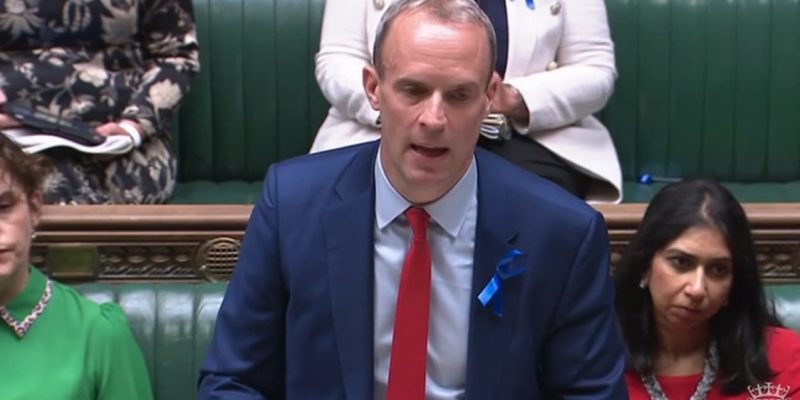
Dominic Raab unveils new Bill of Rights
Dominic Raab unveiled details of a new Bill of Rights Wednesday, which was met with controversy and division.
The 1998 Human Rights Act incorporated the 1953 European Convention (“the Convention”) on human rights into UK law. The replacement 2022 Bill of Rights (“the Bill”) is intended to:
- “reform the law relating to human rights by repealing and replacing the Human Rights Act 1998”
- “[re-balance] the relationship between courts in the United Kingdom, the European Court of Human Rights (ECHR) and Parliament”
- “[affirm] that judgements, decisions and interim measures of the [ECHR] a) are not part of domestic law and b) do not affect the right of Parliament to legislate
- Section 3 of the Human Rights Act is to be repealed but not replaced, meaning courts will no longer be able to adopt legislative interpretations that departs from the intentions of Parliament
The Bill does not repeal the rights of the Convention itself, and the UK has nonetheless held the fundamental rights it contains for decades prior to the Convention’s 1953 incorporation into UK law.
The specific rights mentioned and maintained in the Bill are:
- Articles 2-12 and 14 of the Convention:
Right to life; prohibition of torture; prohibition of slavery and forced labour; right to liberty and security; right to a fair trial; no punishment without law; right to respect for private and family life; freedom of thought, conscience and religion; freedom of expression; freedom of assembly and association; right to marry; prohibition of discrimination - Articles 1 to 3 of the First Protocol:
protection of property; right to education; right to free elections - Article 1 of the Thirteenth Protocol:
abolition of the death penalty
as read with Articles 16 to 18 of the Convention.
The Bill of Rights thus outlines the ways in which UK courts are to proceed in relation to the rights of the Convention while separating from the ECHR.
According to a government press release, the Bill will:
- Boost freedom of the press and freedom of expression by introducing a stronger test for courts to consider before they can order journalists to disclose their sources.
- Prevent courts from placing new costly obligations on public authorities to actively protect someone’s human rights and limit the circumstances in which current obligations apply, for example, police forces having to notify gang members of threats towards them from other gangs.
- Insulate the Government’s plans to increase the use of prison Separation Centres against legal challenge from extremist offenders claiming ‘a right to socialise’.
- Recognise that trial by jury is a fundamental component of fair trials in the UK.
- Prevent human rights from being used as a way to bring claims on overseas military operations once alternative options are provided by upcoming legislation.
- Confirm that interim measures from the European Court of Human Rights under Rule 39, such as the one issued last week which prevented the removal flight to Rwanda, are not binding on UK courts.
The Telegraph opted for a nuanced commentary, discussing support for and concerns surrounding the Bill:
The Times similarly provided a balanced breakdown of the Bill as it currently stands:
The Times view on the bill of rights: Rights and Wrongs
Elsewhere, strong opinions were divided:
View on Raab’s bill of rights: liberty bent to prejudice
Government ‘at risk of losing public confidence’ in immigration controls, warns Dominic Raab as he unveils new Bill of Rights to ‘restore a healthy dose of common sense’ to Britain’s justice system
Ellie Reeves: Conservative Bill Of Rights Con Is A Brutal Attack On Women’s Rights
Nigel Farage blasts Dominic Raab’s Bill of Rights as ‘un-British’ – ‘why not just leave’ the ECHR?
Raab’s Bill of Rights unpicks Blair’s messy reforms
Tories plan to shake-up Human Rights Act so British judges can overrule Europe
You can watch Raab’s introduction of the Bill below.
















